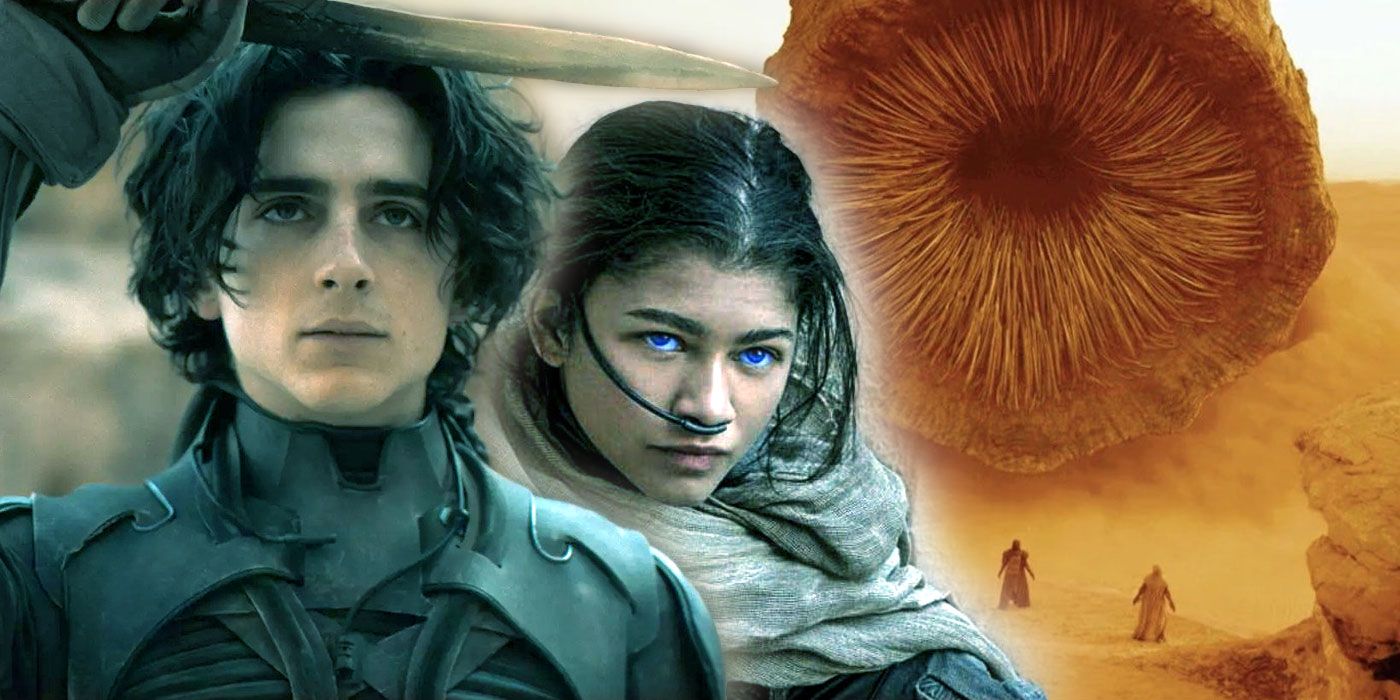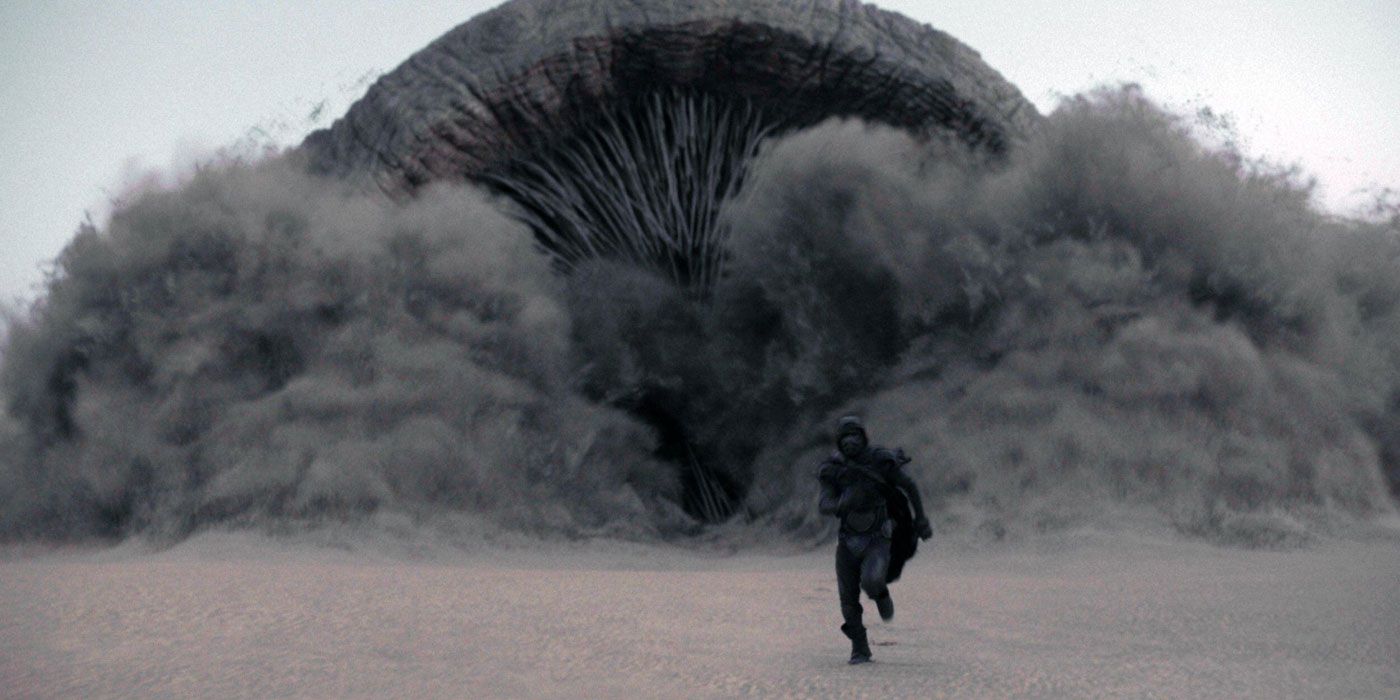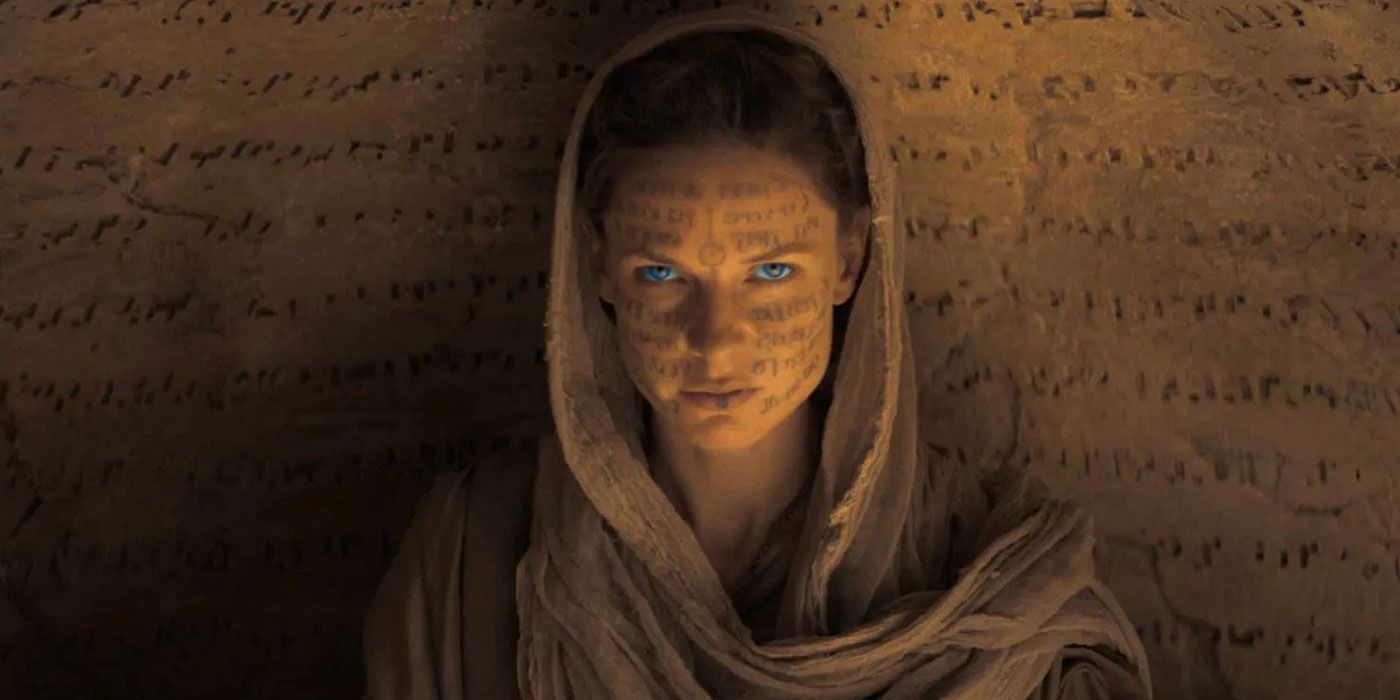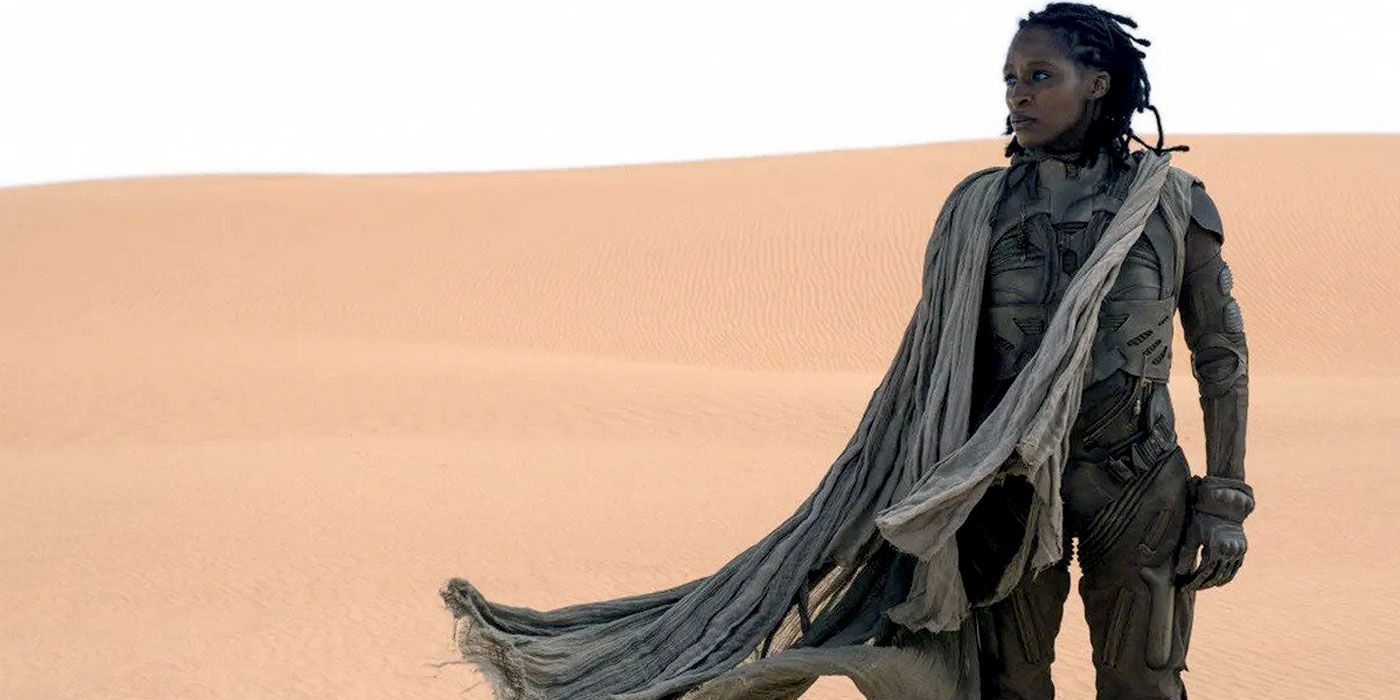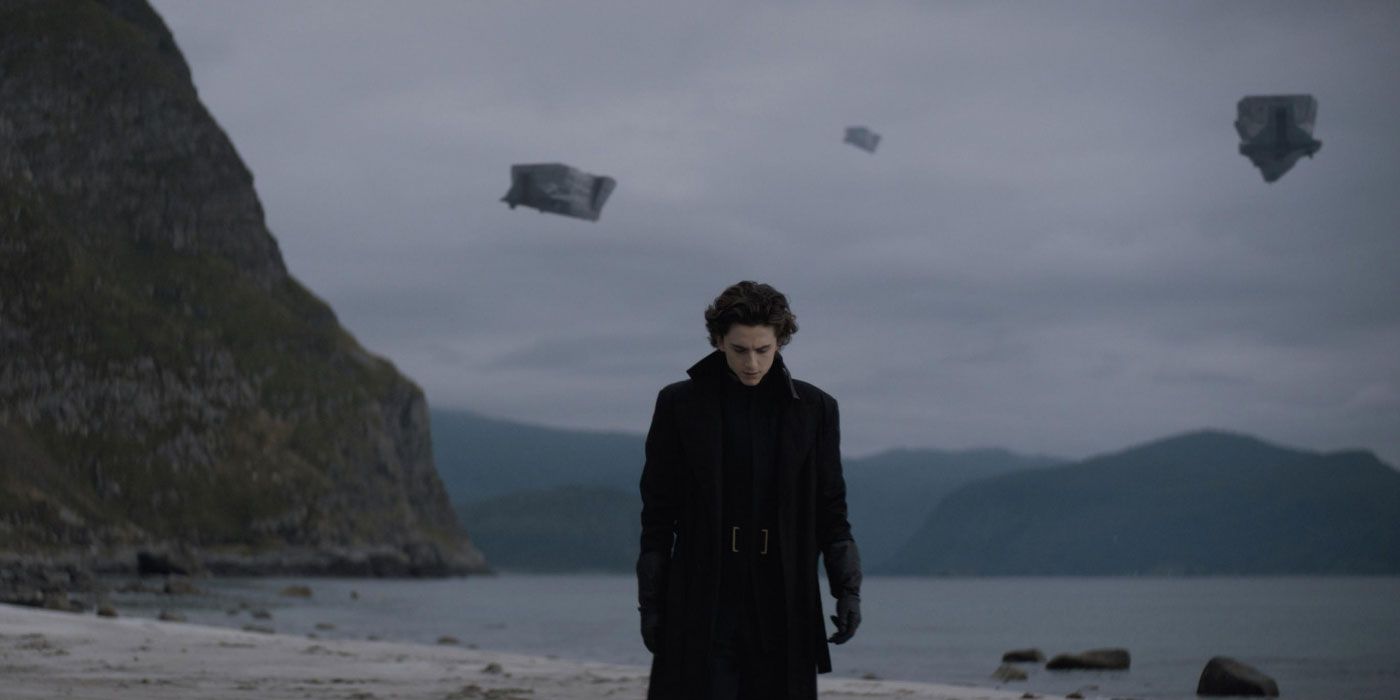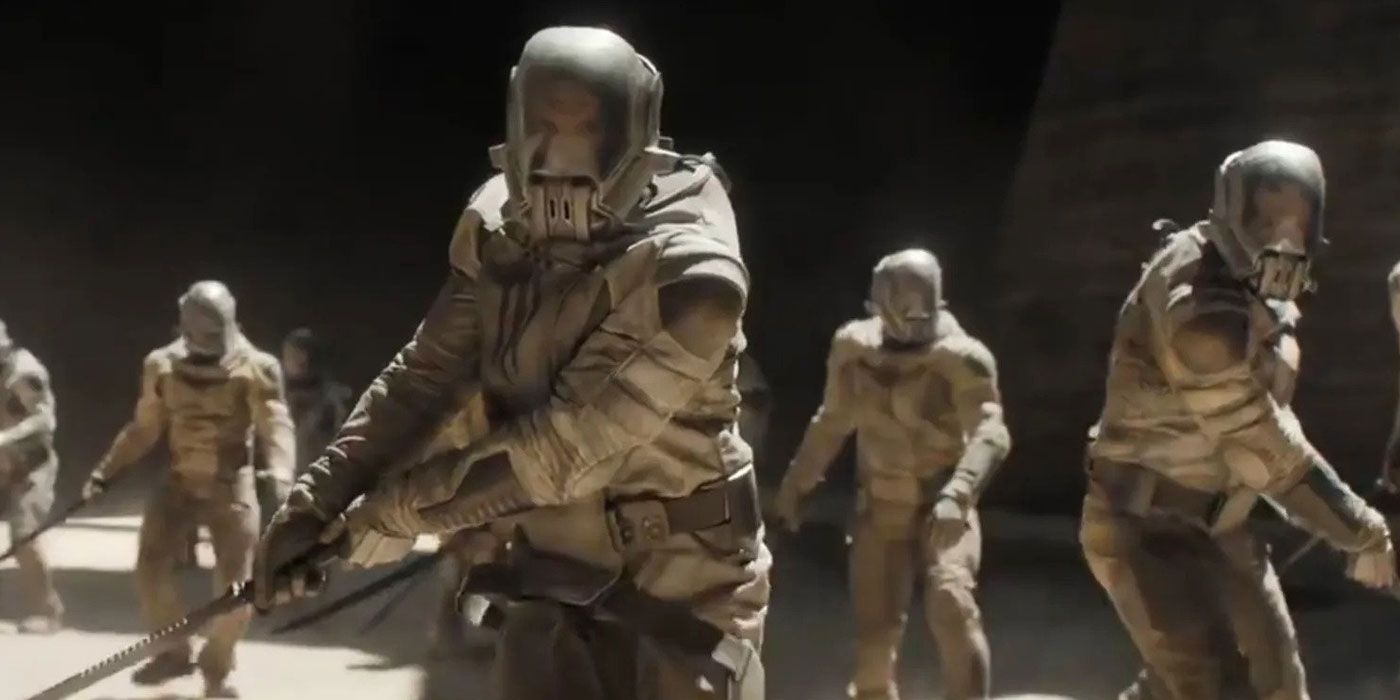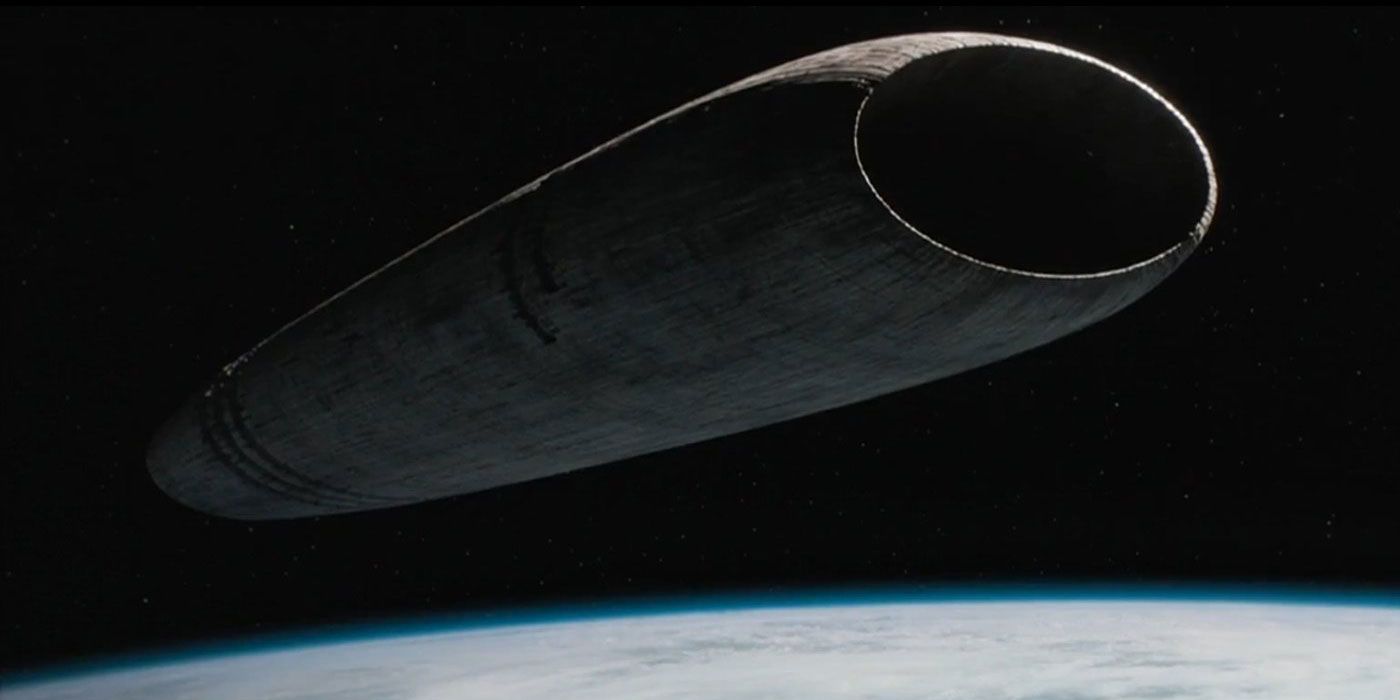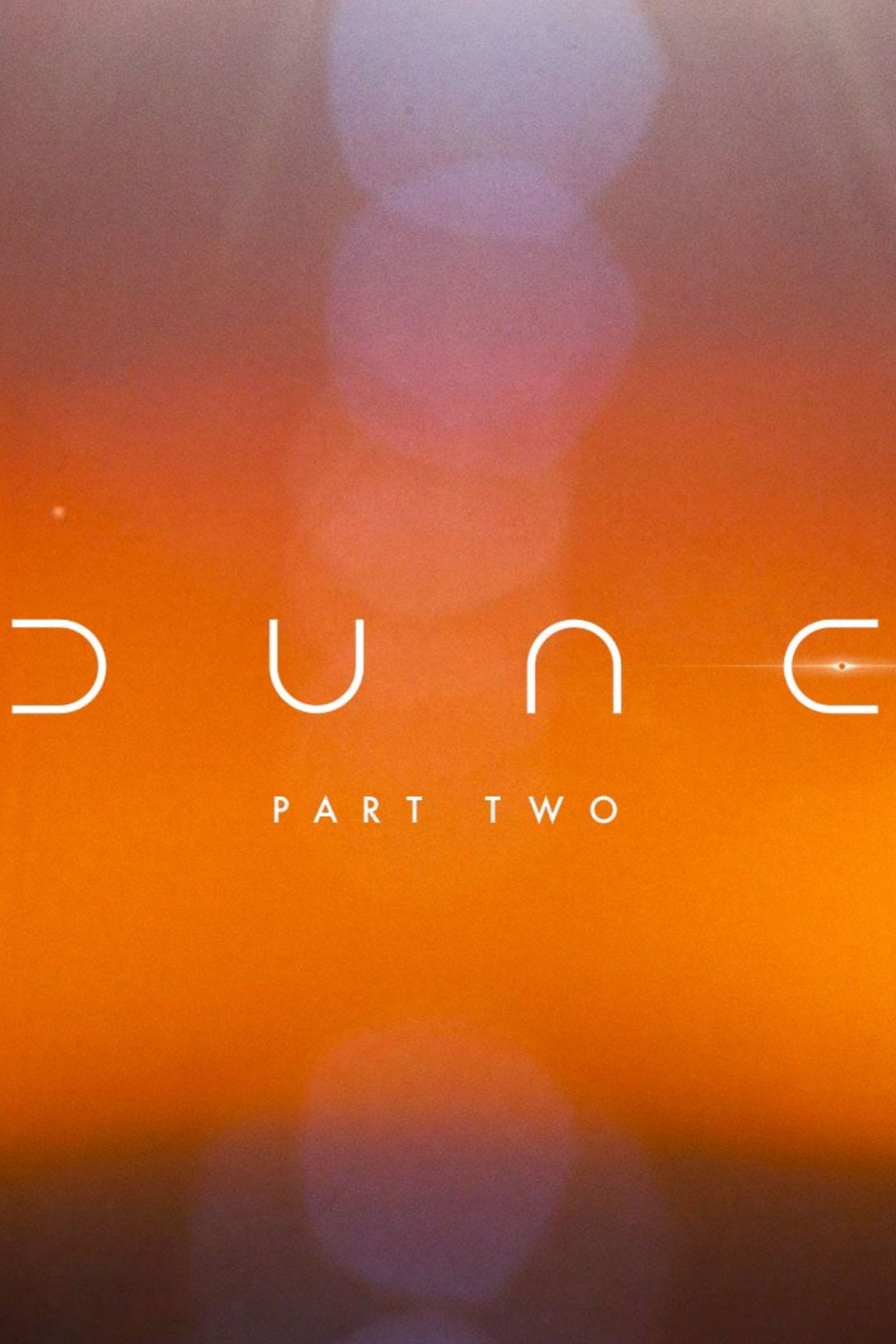Denis Villeneuve’s Dune: Part Two is due to release in 2023, and there’s already the tease that there may be more Dune sequels and spinoffs to come afterward. Adapting Frank Herbert’s original novel, Villeneuve brought Dune to life with breathtaking cinematography, giving tantalizing hints at the vastness of the Dune universe and the inevitable future of House Atreides. With so much story to explore, there are plenty of directions in which future Dune movies could be taken.
The Dune saga is epic in the truest sense of the word. After Frank Herbert’s original Dune novel in 1965, there are currently 26 novels in the Dune series, with a 27th, Dune: The Heir of Caladan, due to be released in 2022. Additionally, there are 11 short stories, 7 comic book stories, and 8 related books like The Dune Encyclopedia and Songs of Muad’dib. Following Frank Herbert’s original six novels, his vision has been continued by his son Brian Herbert and science fiction author Kevin J. Anderson, known for his work writing spin-off novels for Star Wars and Starcraft, among others properties. With such a wealth of source material to choose from, there is a rich galaxy of storytelling that could be adapted for future movies.
The characters of Dune live in such a vast world that it’s long been viewed as a huge challenge to adapt. Villeneuve got around this by only using half of Frank Herbert's lengthy novel for his 2021 Dune adaption, making the next film in the series not a sequel but a direct continuation of the same story, in a similar way to Quentin Tarantino's Kill Bill or Marvel's Avengers: Infinity War. Screenwriter Jon Spaihts has hinted that Dune: Part Two will set the foundations for a third Dune movie and possibly even more to come afterward. Because the Dune universe is so massive in scope at this point, it is likely the only limitation for more big-screen installments will be the financial success of the budding film franchise itself.
Dune Messiah
The first of many Dune sequels, Dune Messiah is set twelve years after the original story, and follows Paul “Muad’dib” Atreides after he rises to become the emperor. Despite being the most powerful emperor ever known, however, Paul is unable to stop the chaos which resulted from the jihad he started, which has killed over 60 billion people. Guided by his visions, Emperor Muad’dib takes it upon himself to try and guide humanity away from its own destruction.
From information given in interviews, Villeneuve has already been considering adapting Dune Messiah as a third movie, making a trilogy of Dune movies. The focus would be on the deconstructive side of the story and the cautionary messages within. Dune Messiah shows that there isn’t a happy ending to be had in war, while cautioning about the dangers of personality cults and mixing politics with religion—on a massive, intergalactic scale.
Dune: The Sisterhood
In production for HBO Max, Dune: The Sisterhood is a prequel series to Dune, putting the spotlight on the Bene Gesserit, like Lady Jessica, and their strange powers. Villeneuve will also be involved with the production of this series together with Brian Herbert. Villeneuve reportedly has a deep fascination with the lore of the Bene Gesserit, the order of powerful women who quietly pull the strings and influence the Imperium and its politics.
Dune: The Sisterhood will give a glimpse below the veil of the mysterious order of “witches.” They are to the galaxy of Dune, in many ways, what the Jedi are to Star Wars, but where the Jedi work openly, the Bene Gesserit prefer to keep to the shadows and work in the background. With only scant information available, it’s still unclear what the show’s story will involve. It could potentially be an adaptation, at least in part, of the 2012 novel, Sisterhood Of Dune.
Adapting Herbert’s Original Stories
Following Dune and Dune Messiah, Frank Herbert’s other four novels are Children of Dune, God Emperor of Dune, Heretics of Dune, and Chapterhouse: Dune. These are obvious places to look for more stories to adapt for the big screen. A three-part miniseries called Frank Herbert’s Children Of Dune was already made in 2003 by SyFy (then called Sci-Fi Channel), starring James McAvoy. These four stories continue the saga originally started by Paul Atreides, vastly expanding the Dune universe.
Children of Dune was the first-ever science fiction bestseller, following Leto and Ghamina, the twin children of Muad’dib, who carry the fate of the universe with them. God Emperor of Dune is set far further into the future, when the Fremen's world of Arrakis has been transformed into a planet of lush forests. The story looks at the cyclic patterns in society, set in a universe ruled over by the seemingly immortal tyrant Leto II Atreides, who’s been transformed into a monstrous hybrid of human and sandworm. Heretics of Dune takes place 500 years later still, after humanity has been scattered to the far corners of the universe, and Chapterhouse: Dune follows on from this story, as the Bene Gesserit struggle to retain their political control.
Needless to say, adapting these stories would be an immense challenge due to their size and scope. Rather than adapting Frank Herbert’s saga in full, it may be better to focus on individual storylines and plot threads drawn from these novels. Many of these novels have enough potential to spawn Dune sequels of their own, adapting and potentially even expanding upon existing material. There’s certainly no shortage of interesting characters to follow.
The Butlerian Jihad
The Butlerian Jihad is the reason why there are no robots or computers in Dune. It's an era in the Dune saga, over 10,000 years before the birth of Paul Atreides, referred to several times in the original Dune novels. This period in the history of humanity saw the destruction of all “thinking machines.” By the time Paul Atreides is born, creating artificial intelligences is long forbidden.
The novel Dune: The Battle of Corrin would be a particularly interesting story to adapt. In it, the last free humans in the universe lead a crusade against the thinking machines, battling an oppressive army of robots led by a sentient computer named Omnius. It covers some of the events which ultimately define the world as seen in the original Dune novel.
An adaption of these stories could explore artificial intelligence and how humanity can become guided by computers and machines, as this was canonically what caused the social upheaval which triggered the events of the books. In our modern world of technology and stories about AI, this would be an interesting piece of Dune lore to adapt for the big screen. A cinema adaption based on The Battle of Corrin may hold a few parallels to more familiar movie sagas, with Omnius being similar to Terminator's Skynet AI or the machines of The Matrix.
The Imperium of Corrino
Following the Battle of Corrin itself, the first emperors established themselves, from House Corrino, with their military force known as the Sardaukar. The events in this part of Dune history lead into the events of the original story. There's a wealth of interesting storylines to be found in this formative era of the Dune universe, including direct prequels.
Movie or TV adaptions set during this era could cover a wealth of stories, from the Guild Navigators folding space for instantaneous interstellar travel, to the establishing of the Bene Gesserit order. This is also the time period where the Prelude to Dune prequel trilogy of novels is set. This storyline sets up the events of the original Dune story and its sequels, centering around the ill-fated House Atreides rising from obscurity after being nearly forgotten.
The Scattering And Their Return
After the fall of the God Emperor, humanity is thrown into utter chaos, with trillions setting off to spread out across the universe. Known as The Scattering, these human diaspora come to live in a very different universe to the one seen in the original Dune story. Far in the future, many people from The Scattering return and throw the balance of political power into disarray. The remnants of what’s now called the Old Empire find themselves at war against powerful and violent factions who are almost certainly their own distant relatives — as is the case with the Bene Gesserit with their Weirding Way, who find themselves at odds with a matriarchal society known as the Honored Matres. Hanging over all of this like a sword of Damocles, there’s also the looming threat of a mysterious enemy from whom many of The Scattering are fleeing.
This era of the Dune universe could be an exciting place to adapt stories from. A war for political strength with shady and powerful individuals working in the background can give a similar feel to the Star Wars prequel era, while opposing forces who may need to unite to face a dangerous unknown enemy is a comparable plot to the concept behind Game of Thrones. There’s certainly an audience hungry for character-based stories mired in war and political intrigue, and the Dune universe has no shortage of potential to make stories like that for both movies and television series.
As the line from the ending of Villeneuve’s Dune says, “this is only the beginning.” If the Dune movies continue to be a success, this line could take on additional meaning. With Dune sequel movies and TV spin-offs already in the works, it’s clear that one way or another, Dune: Part Two won’t be the last time audiences enjoy Frank Herbert’s universe on their screens.

